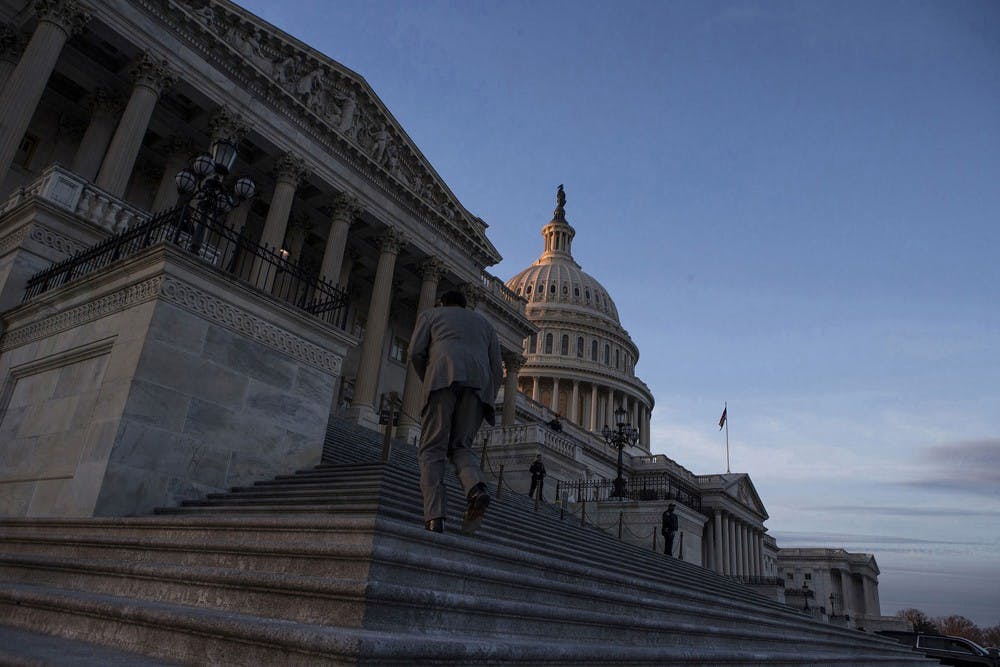The U.S. Senate has often been considered the democratic counterpart to the House of Representatives, seeking to provide equal representation for much smaller states.
This may have been suitable in 1787 when the Great Compromise took place, and there were only 13 states with marginal differences in population compared to state populations today. However, the U.S. has obviously expanded its population and territory significantly, so it seems appropriate to account for that when trying to maintain a representative democracy.
The Senate today is extremely undemocratic, and it often serves as the gatekeeper for what legislation is passed in Congress. It is a significant amount of power to be given to only one hundred senators who often are more concerned with their party coming out on top rather than advancing the needs of the people.
The concentration of power in the Senate is far worse today than it has ever been in our country’s history when taking into account changes in population. For example, today California has almost 40 million people while the 20 smallest states combined still have less than that.
To further emphasize this disparity, former Rep. John D. Dingell, D-M.I., described in an article in The Atlantic how his district with a population of roughly 700,000 people has a higher population total than states such as Vermont and Wyoming.
This is in addition to the very bifurcated chambers often competing against each other on party lines to thwart attempts at passing legislation.
We need a grassroots movement to raise awareness of the oligarchic structure of the Senate today and to pressure Congress and state legislatures to pass a constitutional amendment abolishing the Senate or at minimum combining the two chambers.
There are two ways to amend the U.S. constitution: passing a constitutional amendment or holding a constitutional convention. In order to propose a constitutional amendment, two-thirds of both houses of Congress must approve the amendment and three-fourths of state legislatures must vote to ratify it.
Since it’s unlikely for the Senate to vote to abolish itself, this requires two-thirds of state legislatures to propose a constitutional convention on the amendment and three-fourths of state legislatures to ratify it. The last constitutional convention in the U.S. was the Great Compromise of 1787 when the Senate was established, so one is long overdue.
There are currently numerous calls for constitutional conventions on several proposed amendments, some of the most prominent include Wolf PAC’s effort to eliminate money’s influence in politics as well as efforts by various organizations to balance the budget.
The problem with having a constitutional convention is that it is unclear how it would unfold with regard to state representation and convention rules and procedures due to there not being one in more than 200 years.
In either case, the Senate must be forgone. The Senate today functions primarily to facilitate minority rule over the American people. The interests of rural populations should not be weighed equally on the national scale to those in more populous cities simply because they happen to live on different plots of land.
A proportionally representative body should be the only legislative chamber deciding issues for the American people because that is what is most fair and equal. Moreover, the Senate’s obstruction of important legislation serves to gridlock the legislative process rather than work to help the American people.
Even when one party controls both chambers of Congress and the presidency, the Senate filibuster still makes passing legislation extremely difficult. In order to go around the filibuster, many big changes are put into budget reconciliation bills, which can’t be blocked by the filibuster.
Given the current political circumstances, it is unlikely for the Senate to be completely abolished anytime soon as both sides of the political spectrum would view it as unilateral disarmament. However, with a significant shift in public opinion, it is possible for the Senate to become weakened over time, reducing its control over the passing of legislation.
In Canada’s parliament for example, it is clear that the House of Commons is the dominant chamber. Between 1948 and 1988, the Senate did not reject a single bill passed by the House of Commons, with rejections today being extremely low compared to the U.S.
If the oligarchy of the U.S. Senate becomes more well known and despised by Americans on both sides of the political spectrum,it is possible that we may see a shift towards a Canadian-style Senate if not the eventual abolition of this archaic legislative body.






